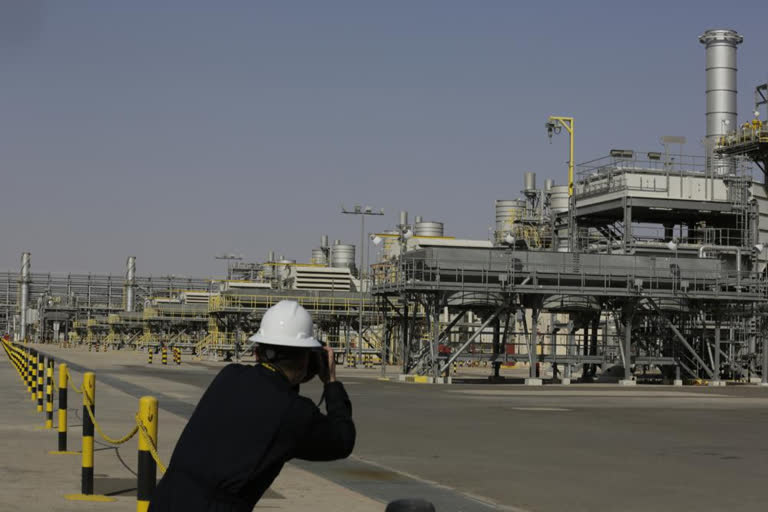Dubai: Saudi Arabia said Monday that it won't bear any responsibility" for a shortage in global oil supplies after a fierce barrage of attacks by Yemen's Houthi rebels affected production in the kingdom, the world's largest oil exporter. The unusually stark warning marked a departure from the giant oil producer's typically cautious statements, as Saudi officials remain aware that even their smallest comments can swing the price of oil and rattle global markets.
The salvo of rebel attacks on Saudi Arabia's oil facilities marked a serious escalation in the war, which erupted in 2014 when the Iran-backed Houthis seized the capital, Sanaa, and much of the country's north. Saudi Arabia and its allies responded with a devastating air campaign to dislodge the Houthis and restore the internationally recognized government.
Seven years later, the conflict has turned into a bloody stalemate and spawned one of the worst humanitarian disasters in the world. The state-run Saudi Press Agency quoted the Saudi Foreign Ministry as saying that the kingdom declares that it will not bear any responsibility for any shortage in oil supplies to global markets in light of the attacks on its oil facilities. The announcement comes as the kingdom remains in lockstep with OPEC and other oil-producing countries in a deal limiting production increases. Gulf Arab oil producers have so far resisted pressure from the Biden administration to pump more crude to help bring down oil prices that have soared amid Russia's war on Ukraine.
Already, gasoline prices have hit record highs around the world. Gas prices in the U.S. topped $4.25 on Monday, according to auto club AAA, just below the historic record of $4.33 reached earlier this month. The international community must assume its responsibility to preserve energy supplies," the Saudi statement added, in order to deter attacks that jeopardize the kingdom's production capability and its ability to fulfill its commitments." The international oil benchmark Brent crude hovered over $112 a barrel in trading Monday, up more than 4% for the preceding session. The price remained below a peak of nearly $140 hit earlier this month, but still some $15 a barrel more than before the Russian invasion of Ukraine.
On Sunday, Yemen's Iran-backed rebels launched one of their most intense series of attacks targeting the kingdom's oil and natural gas production, sparking a fire at a petroleum distribution center in the port of Jiddah, the country's second-largest city, and disrupting production at a petrochemicals complex in Yanbu on the Red Sea coast. The overall extent of damage at the installations remained unclear. The Saudi Energy Ministry acknowledged a temporary drop in oil output at the 400,000-barrel-a-day Yanbu site, without elaborating.
